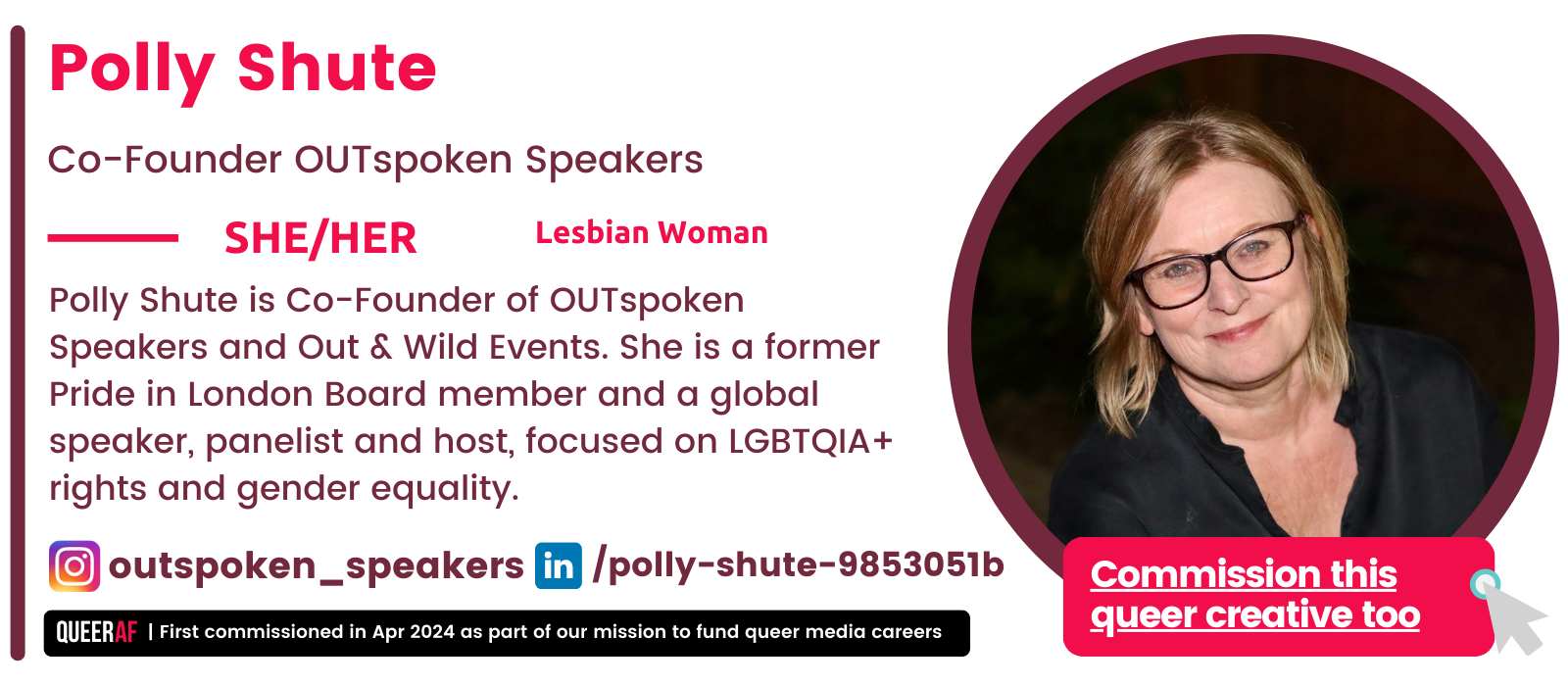
It’s really clear to me, as someone who has long been active in the LGBTQIA+ community, that lesbians do support the trans community.
This year Lesbian Visibility Week is bringing together the UK’s largest queer and lesbian groups around the theme #UnitedNotUniform, which is all about showing support for the entire queer community in all our diversity.
Research from Just Like Us clearly highlights that young lesbians are more supportive of the trans community than any other part of the LGBTQIA+ community.
They are most likely to know a trans person (92%), and most likely to say they are “supportive” or “very supportive” of trans people (96%).
We only need to have this discussion because of a so-called ‘gender critical’ minority that is pushing an anti-trans agenda.
Lesbians have always supported the trans and non-binary community at events like Southbank Surfing, which I have been running for over 14 years and has always been open to many more kinds of people than just cis lesbians.
I’m not alone in making this the standard - other event owners I know also are open to LGBTQIA+ women and those who are non-binary.
In 2018, when an openly anti-trans group disrupted London Pride, demanding to ‘Get the L out of Pride’ and to splinter our community - a community that only has rights thanks to the early pioneering work of Trans+ activists. In response, the #LwiththeT movement was born.
The hashtag and sentiment of support was quickly adopted across the UK and led to the group being invited to lead Brighton Pride just a couple of months later - Vice
"You don't get to speak for me," Maddocks, one of the lesbians involved with the campaign said at the time after seeing anti-trans banners at the front of the Pride march in London. "No one else gets to speak for anyone else, let alone a marginalised community speaking on behalf of another marginalised community.”
And I think that is just the point for me.
Lesbians have a strong history of supporting more marginalised parts of the community. We were there for gay men during the ‘80s and ‘90s when prejudice around AIDs and HIV was at a peak. So why would we not be there for the trans community, especially when they face a similar barrage of online hate, often founded on fiction rather than facts?
I am proud to call myself a lesbian, and am proud to be part of an increasingly diverse community who are more fluid around how they approach gender and sexual orientation. How people choose to identify has no impact on my life or right. In fact, it's been shown time and again that improving the equity of one group has positive effects on everyone - LSE
As an event organiser, I do face criticism for not having lesbian-only events and ‘putting women in danger’. Yet, in three years of running Out & Wild and two years of hosting Southbank Surfing, we have - of course - never had any issues around the safety of lesbians.
Out & Wild Festival is set to grow by 50% this year. Our increased focus on being an event for all of the LGBTQIA+ female and non-binary community is being embraced.
Last year, when The L Project, a gender-critical group, was launched to put a focus on the L in the community, founder Kathleen Stock spoke on Radio 4’s Women’s Hour about the real need for young lesbians to have spaces that were cis-women-only and how she would turn away trans women who wanted to attend their events.
A year on, I have never seen more events being run for Lesbian Visibility Week, and it’s now expanded in the USA. Yet as we approach Lesbian Visibility Week, IDAHOBIT and Pride Month, I see that there are no events planned on the Lesbian Project’s website. Makes you think.


When you sign up for a QueerAF membership - we ask you what kinds of stories you want to see us focus on.
It shifts the power away from clicks for advertisers, to what the community wants to see.
Lesbians and queer women - an incredibly underserved part of the queer media landscape.
So it's no surprise to us, that stories from and for lesbians, bi+ and queer women is something QueerAF members want to see more of.
We're with you. But when we commission stories, we're not thinking about what we think should be out there—we're directly delivering on the stories you asked to see.
Even more so, we're asking people with lived experience from these backgrounds to do the journalism. Because it makes our understanding of these stories stronger.
Help us work with more incredible lesbian, bi+ and queer women journalists.
QueerAF's output is in your hands, not advertisers.
Join over 225 paid QueerAF members who help keep our newsletter free for everyone:











